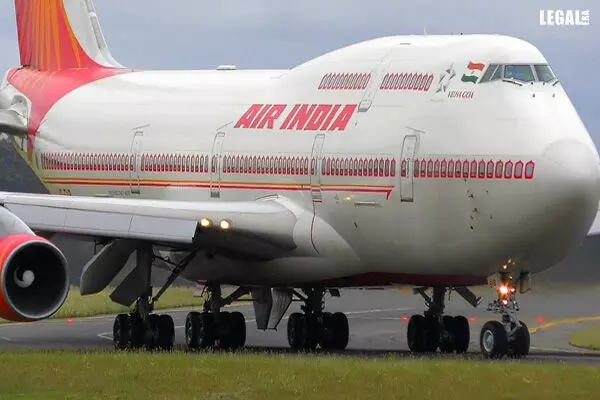- Home
- News
- Articles+
- Aerospace
- Artificial Intelligence
- Agriculture
- Alternate Dispute Resolution
- Arbitration & Mediation
- Banking and Finance
- Bankruptcy
- Book Review
- Bribery & Corruption
- Commercial Litigation
- Competition Law
- Conference Reports
- Consumer Products
- Contract
- Corporate Governance
- Corporate Law
- Covid-19
- Cryptocurrency
- Cybersecurity
- Data Protection
- Defence
- Digital Economy
- E-commerce
- Employment Law
- Energy and Natural Resources
- Entertainment and Sports Law
- Environmental Law
- Environmental, Social, and Governance
- Foreign Direct Investment
- Food and Beverage
- Gaming
- Health Care
- IBC Diaries
- In Focus
- Inclusion & Diversity
- Insurance Law
- Intellectual Property
- International Law
- IP & Tech Era
- Know the Law
- Labour Laws
- Law & Policy and Regulation
- Litigation
- Litigation Funding
- Manufacturing
- Mergers & Acquisitions
- NFTs
- Privacy
- Private Equity
- Project Finance
- Real Estate
- Risk and Compliance
- Student Corner
- Take On Board
- Tax
- Technology Media and Telecom
- Tributes
- Viewpoint
- Zoom In
- Law Firms
- In-House
- Rankings
- E-Magazine
- Legal Era TV
- Events
- Middle East
- Africa
- News
- Articles
- Aerospace
- Artificial Intelligence
- Agriculture
- Alternate Dispute Resolution
- Arbitration & Mediation
- Banking and Finance
- Bankruptcy
- Book Review
- Bribery & Corruption
- Commercial Litigation
- Competition Law
- Conference Reports
- Consumer Products
- Contract
- Corporate Governance
- Corporate Law
- Covid-19
- Cryptocurrency
- Cybersecurity
- Data Protection
- Defence
- Digital Economy
- E-commerce
- Employment Law
- Energy and Natural Resources
- Entertainment and Sports Law
- Environmental Law
- Environmental, Social, and Governance
- Foreign Direct Investment
- Food and Beverage
- Gaming
- Health Care
- IBC Diaries
- In Focus
- Inclusion & Diversity
- Insurance Law
- Intellectual Property
- International Law
- IP & Tech Era
- Know the Law
- Labour Laws
- Law & Policy and Regulation
- Litigation
- Litigation Funding
- Manufacturing
- Mergers & Acquisitions
- NFTs
- Privacy
- Private Equity
- Project Finance
- Real Estate
- Risk and Compliance
- Student Corner
- Take On Board
- Tax
- Technology Media and Telecom
- Tributes
- Viewpoint
- Zoom In
- Law Firms
- In-House
- Rankings
- E-Magazine
- Legal Era TV
- Events
- Middle East
- Africa
Air India Fined ₹35,000 for Unreasonable Flight Cancellation by Chandigarh Consumer Panel

Air India Fined ₹35,000 for Unreasonable Flight Cancellation by Chandigarh Consumer Panel
The District Consumer Disputes Redressal Commission-I in Chandigarh has ruled in favour of a couple who faced inconvenience due to Air India's last-minute flight cancellation and rescheduling. The bench, comprising Pawanjit Singh (President), Surjeet Kaur (Member), and Suresh Kumar Sardana (Member), held Air India liable for deficiency in services and unfair trade practices.
In February 2022, the couple planned a trip to visit their children in the United States. Their son booked Air India tickets for their specific travel schedule. Due to health issues, they rescheduled their return tickets, incurring an additional cost of ₹29,400. They also booked train tickets based on the revised flight schedule.
However, on January 12, 2023, just days before their return, Air India sent an email informing them that their original flight was cancelled. The airline offered a rescheduled flight on a different date, which meant an inconvenient arrival time in India at 1:55 AM. This sudden change disrupted their plans and caused them difficulty, especially with their late arrival.
The couple felt aggrieved by the airline's actions and filed a consumer complaint against Air India. They argued that the cancellation caused mental agony and harassment due to the inconvenience and late arrival.
Air India defended itself by claiming the cancellation was due to "operational reasons" related to public safety and security. They further stated that offering an alternative flight was a goodwill gesture and that the couple's travel without objection rendered the complaint non-maintainable.
The District Commission scrutinised the email sent by Air India and found it lacking any details regarding the supposed "operational reasons" for the cancellation. This lack of transparency led the commission to hold Air India accountable for deficiency in service and unfair trade practices.
While the couple requested a full refund for the preponed tickets, the commission acknowledged their travel on the rescheduled flight. Therefore, a full refund was not granted. However, the commission ruled that Air India must compensate the couple for the inconvenience and mental stress caused.
Air India was ordered to pay a total of ₹35,000 to the couple. This includes ₹25,000 as compensation for mental agony and harassment caused by the last-minute cancellation and inconvenient rescheduling. Additionally, Air India must pay ₹10,000 to cover the couple's litigation expenses.



